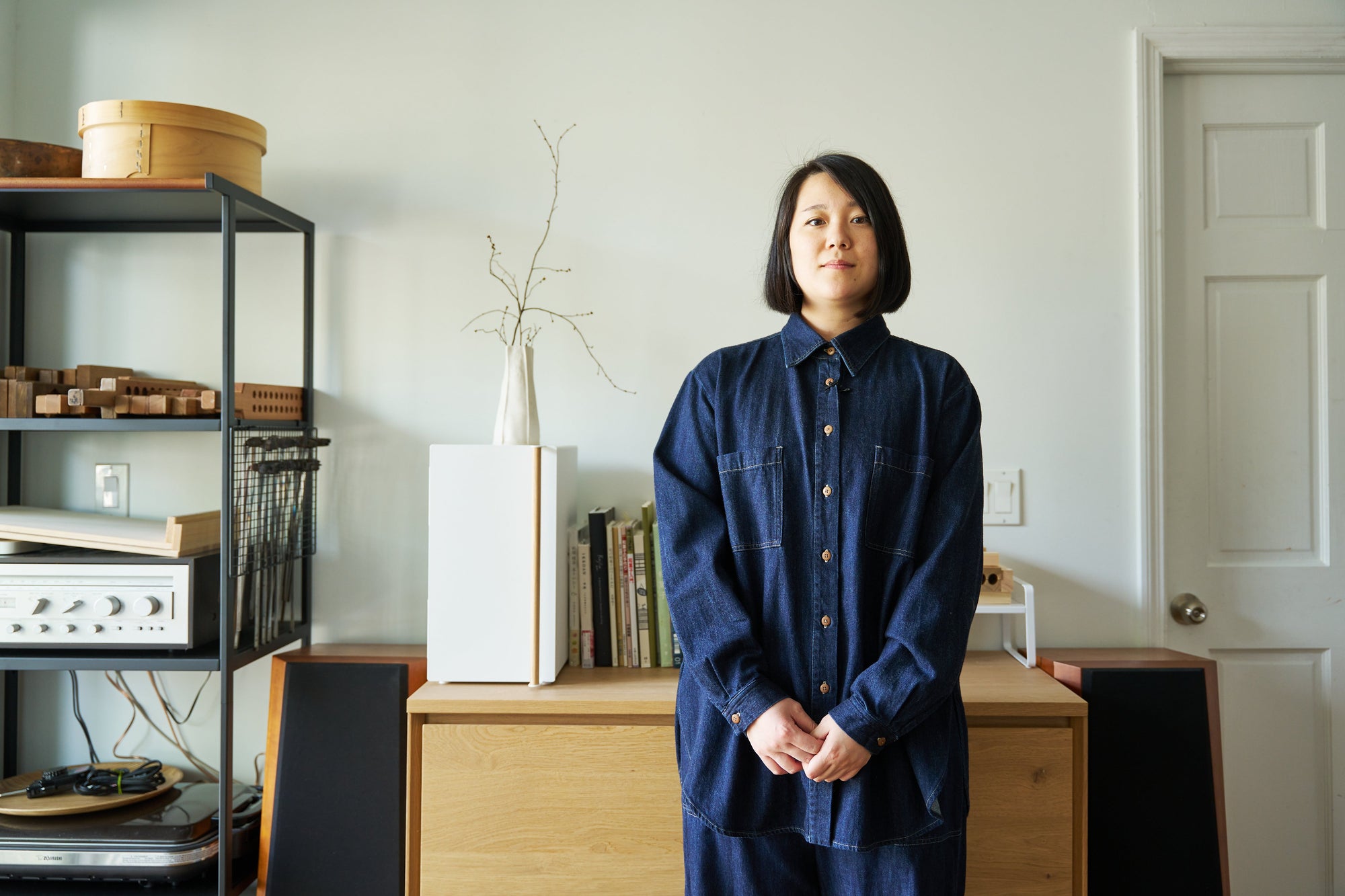In honor of AAPI Heritage Month, we sat down with NYC-based Wagashi artist Phoebe Ogawa, whose delicate, hand-crafted confections honor traditional Japanese techniques and celebrate the everyday with odes to the seasons and Mother Nature.

At Yamazaki Home, we’re always inspired by people who blend tradition with creativity. This AAPI Heritage Month, we had the pleasure of speaking with Phoebe Ogawa, a talented wagashi artist who is bringing the beauty of traditional Japanese confections to New York City and beyond.
Wagashi is a traditional Japanese confections often enjoyed with tea, crafted to reflect the seasons, nature, and cultural symbolism. Made with rice flour, bean paste, sugar, and water, wagashi are known for their delicate flavors, artistic presentation, and deep connection to Japanese traditions and aesthetics. Each piece is thoughtfully shaped, colored, and designed ... turning a simple sweet into a moment of beauty and reflection.

Phoebe Ogawa’s professional path has been anything but conventional. After building a career in tech, she made the bold decision to pivot and immerse herself in the art of wagashi-making. Ogawa moved to Kyoto, Japan, to train under renowned wagashi makers and deepen her understanding of this delicate, traditional craft.



"It’s rewarding to see people who have somehow come across wagashi on their travels, online, or through my partnerships, and actively seek out the wagashi I create." —Phoebe Ogawa
Upon returning to New York, she became the Pastry Chef at the Michelin-starred Japanese restaurant Kajitsu, where she created a menu focused entirely on wagashi. This was a game-changing moment for New York’s food scene, as Phoebe introduced many NYC-diners to a world of Japanese confections that few had experienced before.
Now you can find her wagashi at MOGMOG, a Japanese grocery store in Long Island City, and on select weekends at Kettl, a beloved Japanese tea shop in Greenpoint. She also caters events, gallery openings, and hosts wagashi-making classes.
Ogawa’s connection to her Japanese heritage runs deep, even though she grew up between the United States and Canada. She said, “Though my parents ensured that my sister and I were taught the language and maintained traditions, growing up in the West made it difficult to fully connect with my Japanese background. This resulted in a natural curiosity about myself and my family history, which eventually led to stints living in Japan on my own to try and understand what it meant to be Japanese.”

Growing up, Ogawa said, “Our mother made the utmost effort to make our meals as authentically Japanese as possible, including daily bento boxes for our school lunches.”. This early exposure to Japanese ingredients and traditions sparked a deep interest in understanding her heritage.
Ogawa’s experience as a female wagashi artist has been overwhelmingly positive. “I attended pastry school in Kyoto and worked at a local wagashi shop, where most of my classmates and co-workers were women,” she shares. In a field where traditions often feel deeply ingrained, Phoebe has found encouragement and community, allowing her to grow and thrive as a woman in the culinary world.
However, as a Japanese business owner, she faces unique challenges. “Wagashi are not as well known as other Japanese foods, such as sushi or ramen, and many Westerners are hesitant to try desserts made with sweetened beans,” she acknowledges. Despite this, the response from New Yorkers has been overwhelmingly positive.
Many customers are discovering wagashi through Ogawa’s work, either by chance or through word of mouth. “It’s rewarding to see people who have somehow come across wagashi on their travels, online, or through my partnerships, and actively seek out the wagashi I create.” she said.
Wagashi
Phoebe’s May-Inspired Creations
Looking ahead, Phoebe has ambitious plans for the future of her craft. “I would love to play a role in the education and training of new generations of wagashi makers,” she shares. As she continues to grow her business, Ogawagashi, she hopes to bring the beauty and history of this ancient craft to even more people around the world.
In the kitchen, Phoebe values simplicity and functionality—qualities that perfectly align with Yamazaki Home products. “The simplicity of [Yamazaki Home] designs and their ability to blend in any environment is really great,” Phoebe says. Whether it’s organizing her ingredients or keeping her workspace tidy, she relies on Yamazaki’s space-saving products to keep things in order. Her advice to home cooks? “Clear as you work is a core rule in any kitchen,” she emphasizes.

Phoebe’s journey is a beautiful testament to the power of heritage, passion, and perseverance. Through her artistry and dedication to wagashi, she’s not only introducing a traditional Japanese craft to new audiences but also creating a space where cultural exchange and appreciation can flourish. We’re honored to celebrate Phoebe Ogawa this AAPI Heritage Month and are excited to see how she continues to shape the future of wagashi.
Thank you for joining us in honoring Phoebe Ogawa’s story and the rich history of AAPI culture. Stay tuned for more inspiring interviews and stories from our community!
Follow Phoebe Ogawa on Instagram @ogawagashi for more!
Shop the Story!
Blog
Histoires de Yamazaki :
Un blog par nous, pour vous
























































